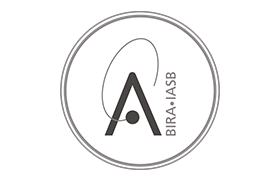About
SCARBOn: Greenhouse Gas Monitoring from Space
SCARBOn (Space CARbon Observatory next step) is European collaborative innovation project, funded under the EU Horizon Europe Programme. Building on the success of its predecessor, the Horizon 2020 SCARBO project, SCARBOn (2024-2026) represents a step ahead in Europe's fight against climate change.
SCARBOn brings together a diverse team of experts from across Europe, all working towards a common goal: to define a concept of satellites, aiming for an embark in 2030, tracking greenhouse gas (GHG) emissions from space more accurately and frequently than ever before.
SCARBOn’s mission is to develop a conceptual formation of small satellites, that will provide sub-daily accurate measurements of GHG emissions (namely CO2 and CH4) in the Earth athmosphere. Such monitoring will be enabled by maturing the innovative miniaturised static spectrometer sensor NanoCarb (result of previous joint efforts of French entities – Office National d’Etudes et de Recherches Aérospatiales, Université Grenoble Alpes and Absolut System) along with accommodating the aerosol sensor SPEXone (an instrument of Airbus Netherlands BV).
Started in January 2024 and coordinated by Airbus Defence and Space SAS from the city of Toulouse, France, in collaboration with the space industry, SMEs, and scientific institutes based in several European countries, SCARBOn is an excellent example of European collaboration on a cutting-edge technology.

SCARBOn mission
With an ambitious timeline of 30 months, SCARBOn project members work hard, based on the insights gained from the preceding SCARBO study, on detailed technical and industrial definition of the NanoCarb instrument – the key enabler of the SCARBOn mission. Instrument‘s development phase will be followed by an airborne demonstration campaign that will use the NanoCarb prototype instrument to validate the SCARBOn’s satellite formation capability to monitor GHG emissions from point sources (e.g. large power plants) by simulations of the complete science data retrival chain. Finally, the overal concept of the satellite constellation system will be refined in order to add autonomy, scalability, flexibility and complementarity to the SCARBOn mission, in view of short-term industrial implementation and costs optimisation.
The SCARBOn mission complements existing CO2 measurement sources, particularly the ongoing Copernicus Anthropogenic Carbon Dioxide Monitoring mission (CO2M) by the European Space Agency, to create a hybrid system with enhanced performance and more frequent revisit times.

An EU Horizon Europe project
The SCARBOn project is co-financed within the EU’s key funding programme for research and innovation – Horizon Europe. SCARBOn project has been selected for support within the Cluster 4 (Space) of Horizon Europe Programme, which enhances the EU’s strategic independence through backing technological advancements and research initiatives within the field of space exploration. Cluster 4 activities are funded by the European Health and Digital Executive Agency (HADEA) of the European Commission. HaDEA is committed to boost Europe's capabilities across several key sectors: health, food safety, digital technologies and networks, industrial capacities, and space. The agency focuses on implementing actions that enhance the competitive edge of European industry and foster a healthier, resilient, and fair society.








